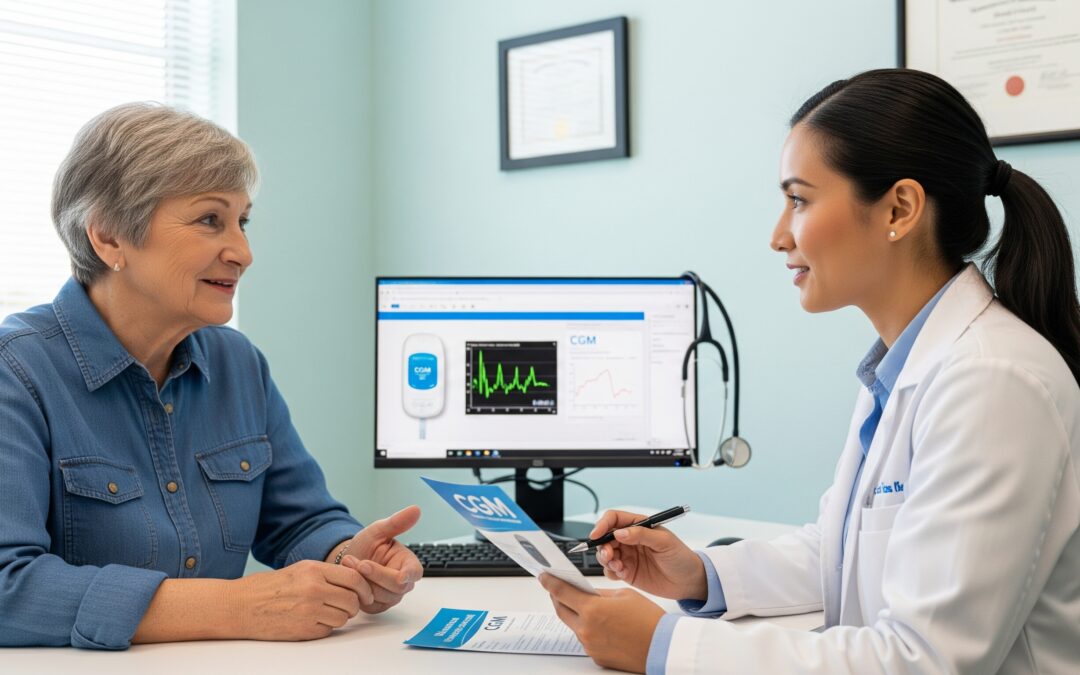When you’re living with diabetes, it’s easy to feel overwhelmed by all the daily tasks: managing food, medications, movement, and mental health. But one simple, consistent habit can quietly transform how you approach it all—regular blood sugar monitoring. It might seem small, even routine, but the blood sugar tracking benefits can ripple through every part of your health and day-to-day life.
Tracking Patterns That Actually Matter
At its core, tracking is more than just gathering numbers. It’s about tuning into your body. Over time, patterns emerge—maybe your levels dip after a stressful day or spike from a seemingly harmless snack. Recognizing those changes helps you make more informed choices and adjust your routines with intention, not guesswork.
Blood Sugar Tracking Benefits in Real-Life Care
For many people, this habit also builds a stronger connection with their care team. When you can bring detailed readings to an appointment—whether recorded by hand or gathered through a Continuous Glucose Monitor (CGM)—you’re giving your provider real data to work with. Together, you can fine-tune your treatment plan, explore options, and talk through concerns with more clarity.*
The Confidence That Comes With Clarity
Another unexpected benefit of tracking? Confidence. Seeing progress, understanding your body’s rhythms, and knowing how different foods or activities affect your numbers can take some of the mystery (and stress) out of diabetes management. It empowers you to be more proactive, instead of reactive, and that sense of control can make a real difference in how you feel mentally and physically.
Tools That Support Your Blood Sugar Tracking Goals
Technology has made tracking more accessible than ever. If finger sticks feel difficult or inconvenient, CGMs provide real-time insights and alerts—making the process less disruptive and more informative. These tools don’t just give you numbers; they offer feedback that can help you spot patterns and prevent problems before they escalate.*
A Habit That Connects to the Bigger Picture
Of course, tracking won’t solve everything. It’s just one piece of the puzzle. But it’s a piece that connects to so many others—like food, movement, stress, and sleep. And over time, the consistent habit of checking in with your body builds a foundation for stronger, more personalized care.
Reframing What Blood Sugar Monitoring Really Means
So if blood sugar monitoring has felt like a chore in the past, it might be worth rethinking. Not as something you “have” to do, but something that can give you valuable insight, open up more informed conversations with your provider, and help you feel more in tune with your health. That’s the power of paying attention—and it’s one of the most overlooked blood sugar tracking benefits of all.
Important Note:
This content is for informational and educational purposes only and is not a substitute for professional medical advice, diagnosis, or treatment. Always consult your healthcare provider with any questions regarding a medical condition or treatment plan. No doctor-patient relationship is established by reading or interacting with this content.
You Might Also Like

13 Blood Sugar Control Tips for Healthy Eating
Managing blood sugar levels is one of the most important aspects of living with diabetes. Stable glucose levels help reduce the risk of long-term complications and improve daily energy, mood, and...

How Simple Habits Can Support Type 2 Diabetes Management
Many people are surprised when they’re diagnosed with type 2 diabetes—especially if they’ve lived a relatively active and healthy lifestyle. A diagnosis like this can bring on a wave of confusion,...

Can You Get the Dexcom G7 Through Medicare?
A Powerful Tool for Managing Diabetes Managing diabetes effectively requires access to the right tools—and for many people, that includes a continuous glucose monitoring (CGM) system like the Dexcom...



